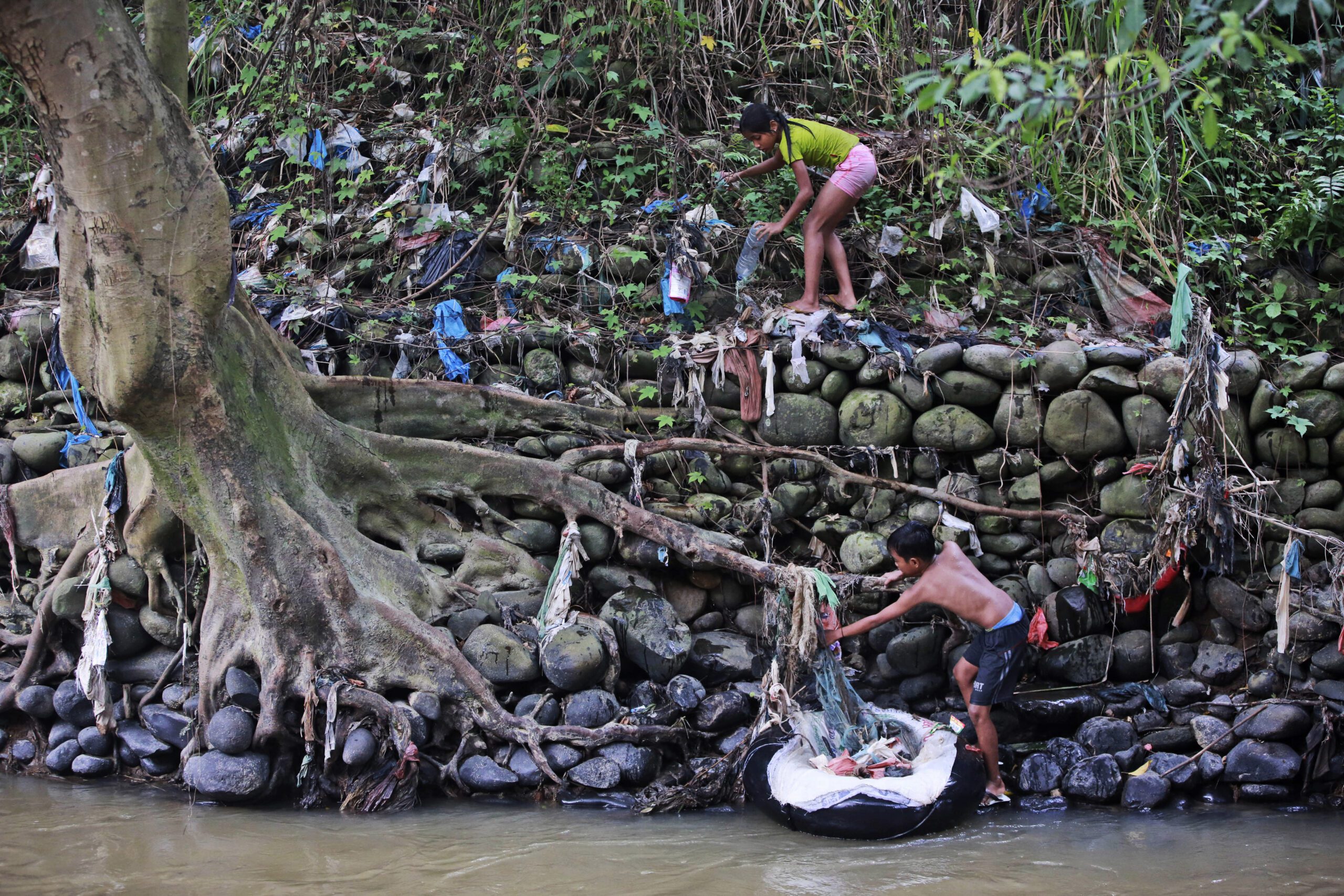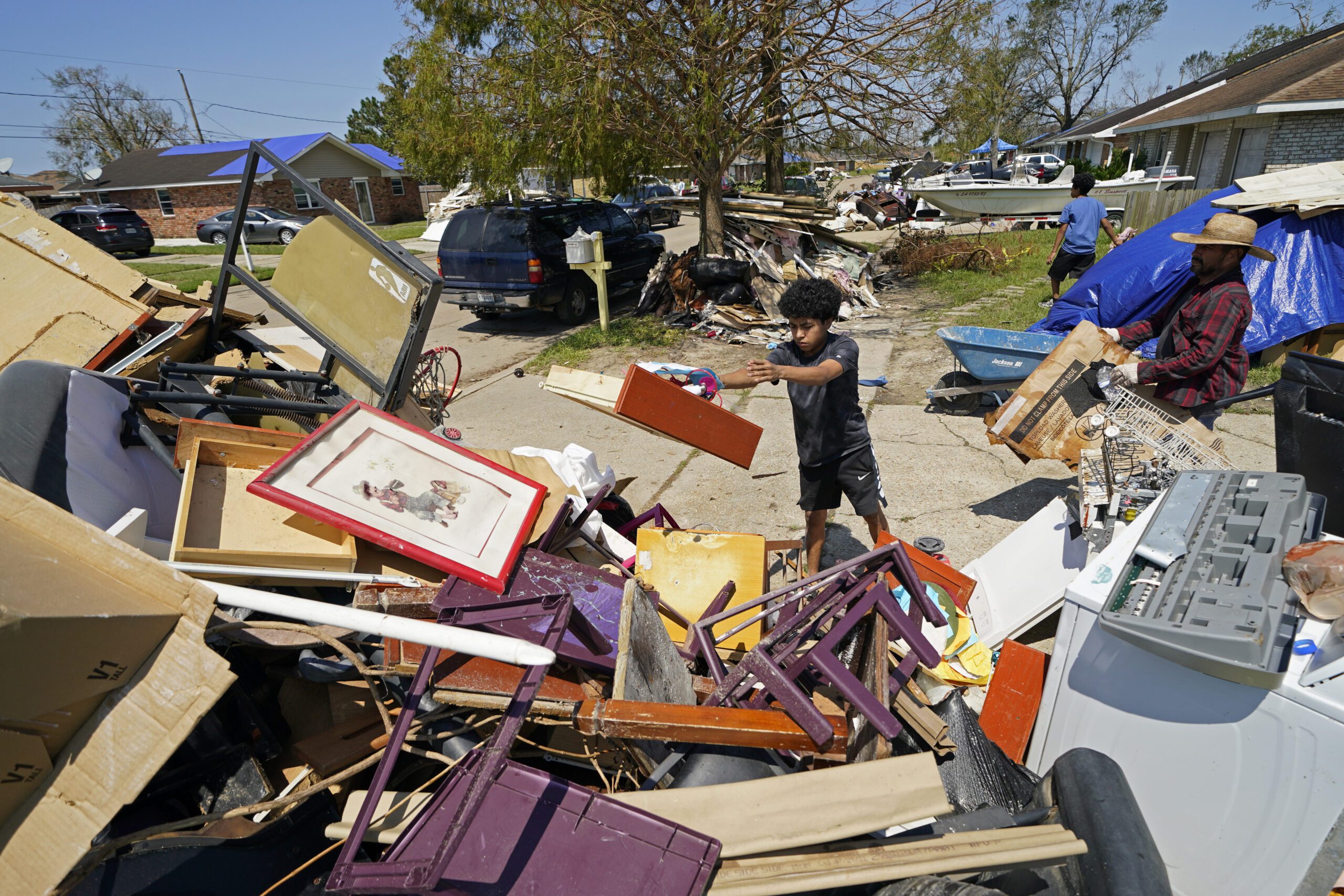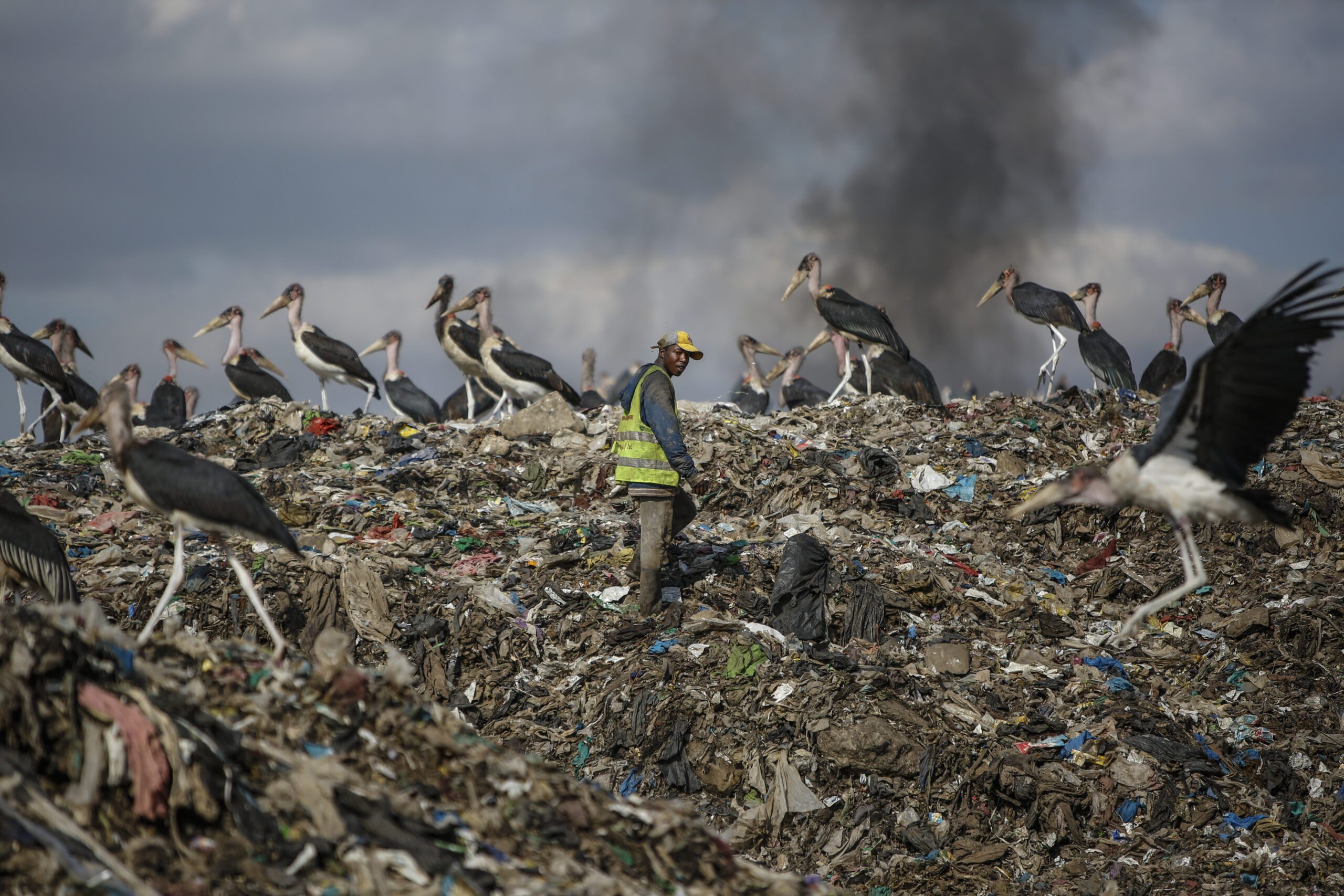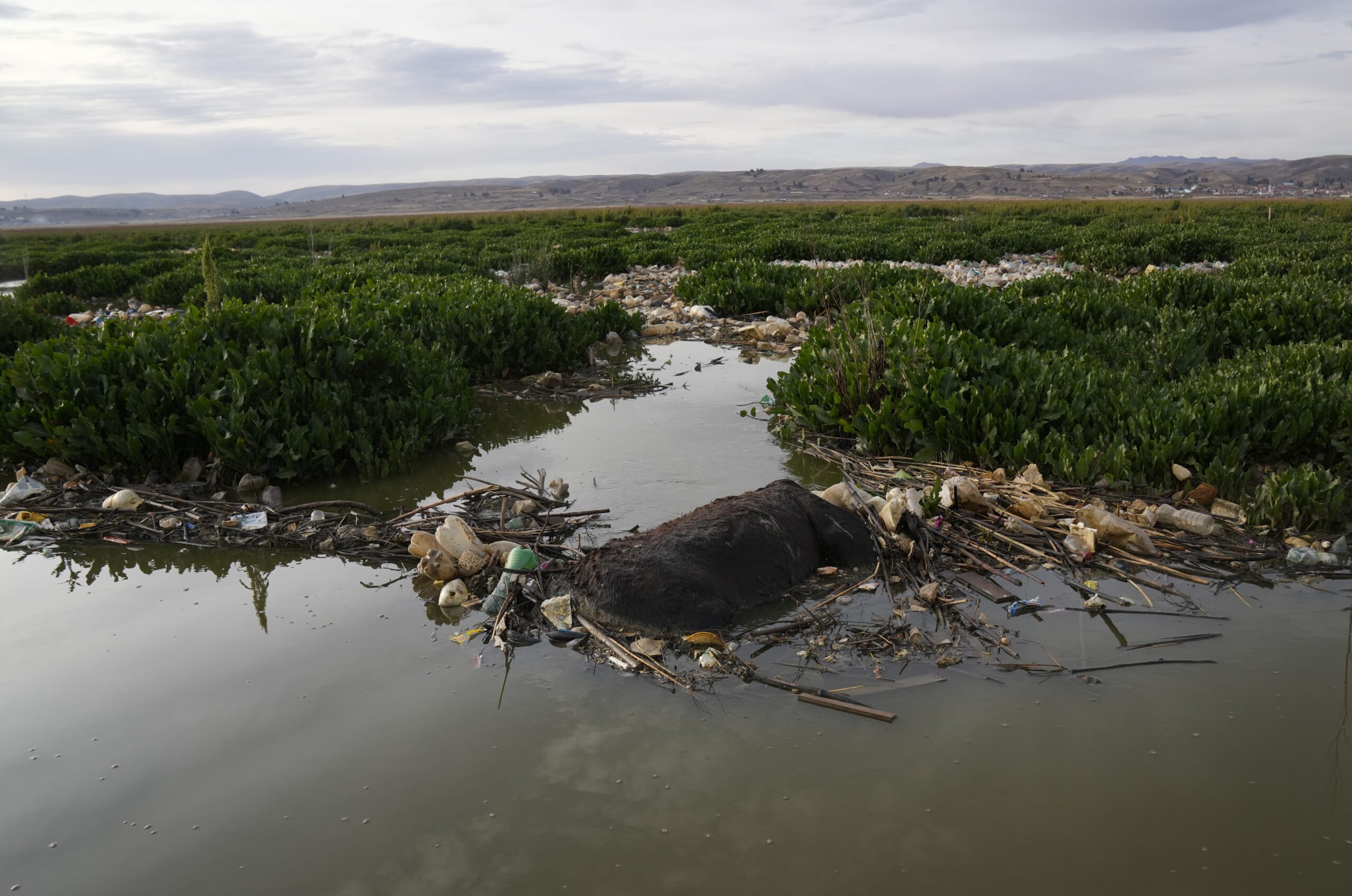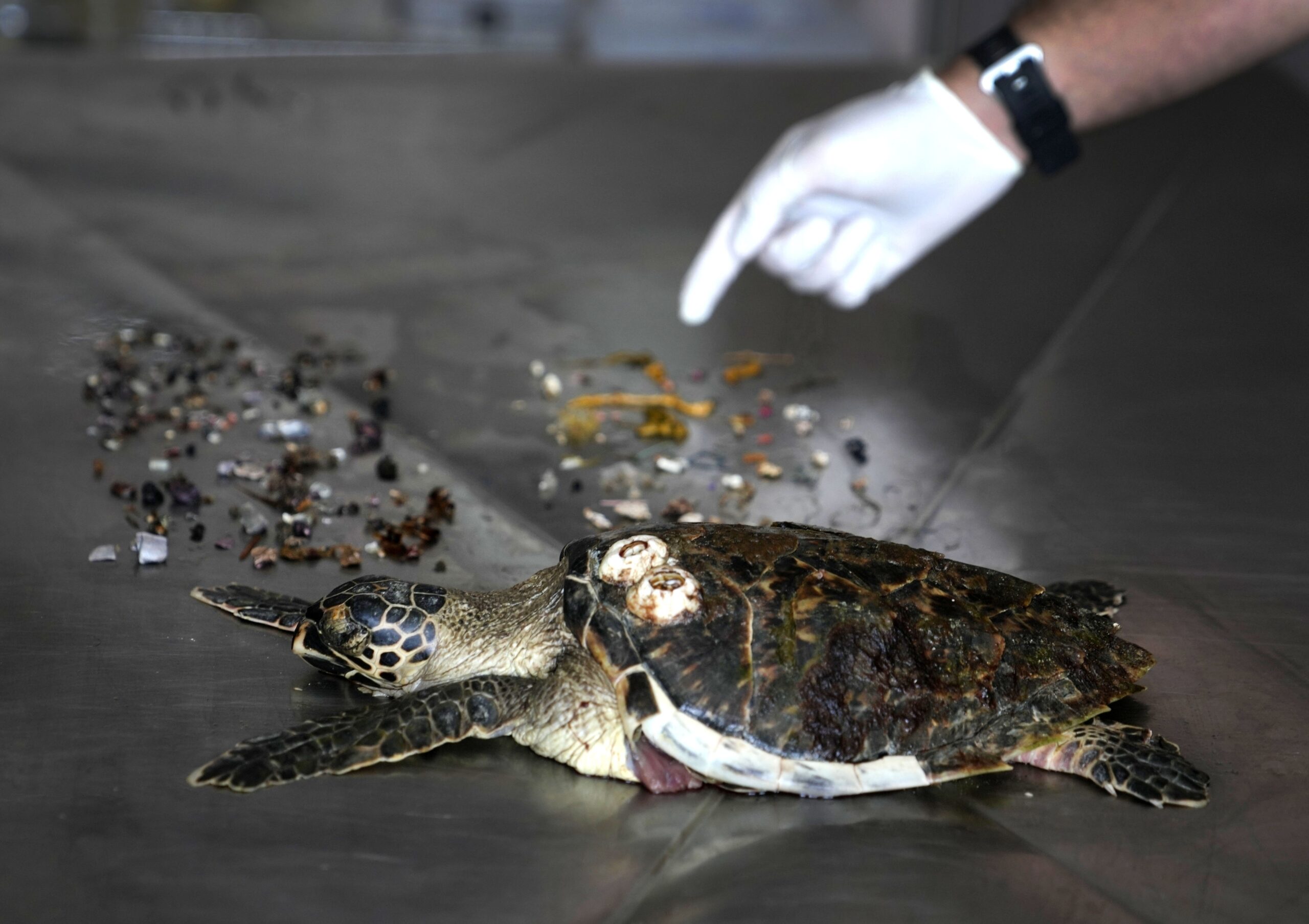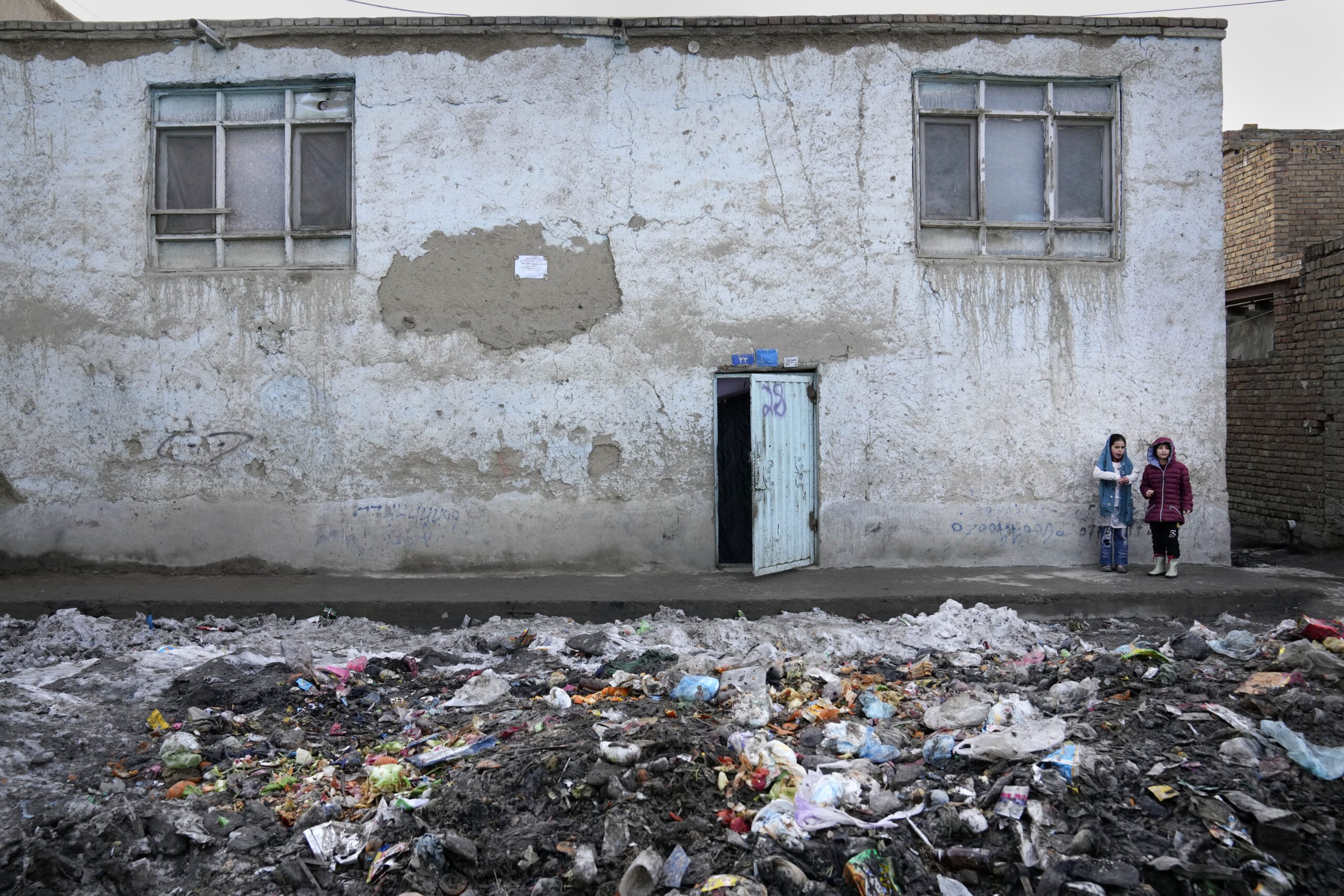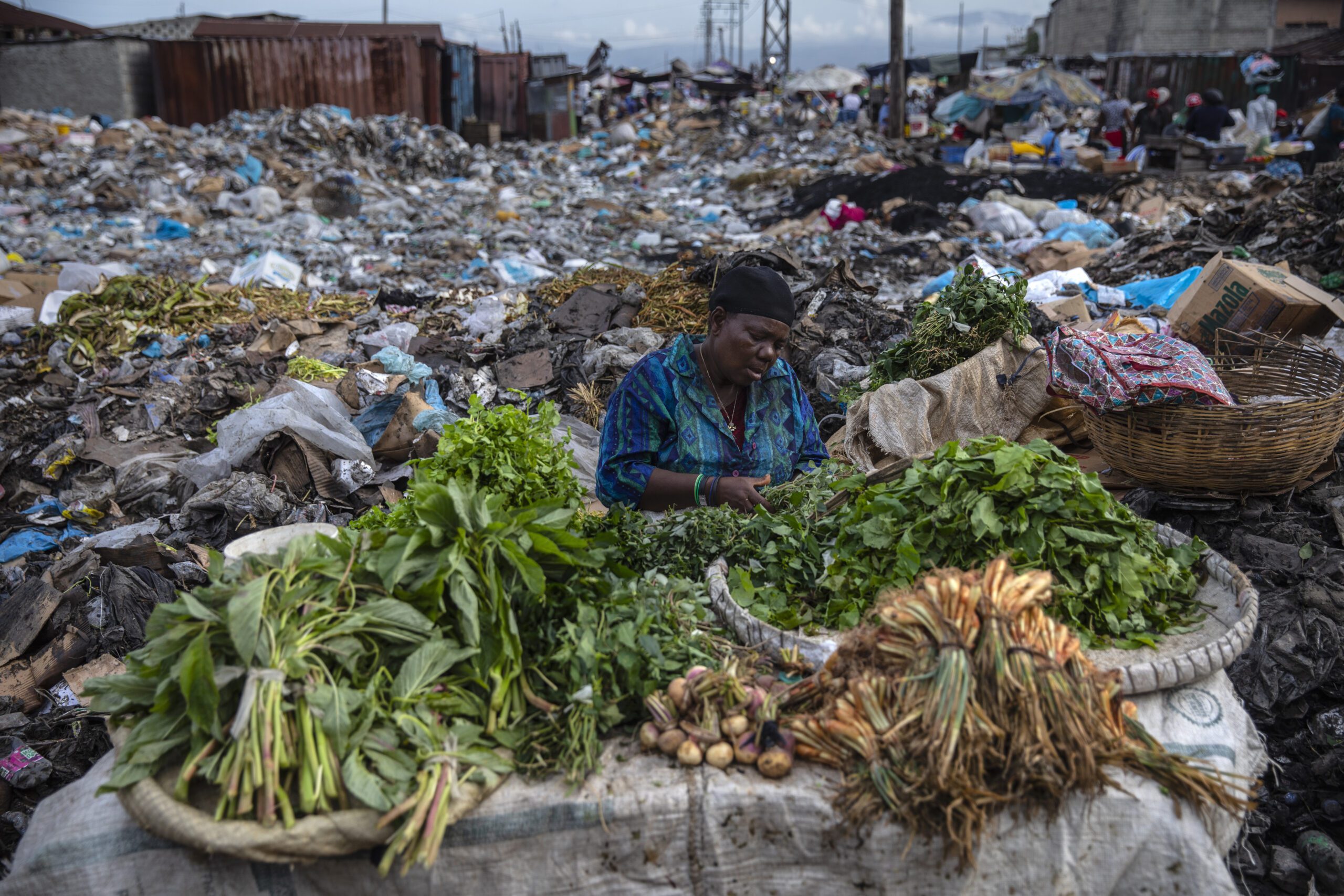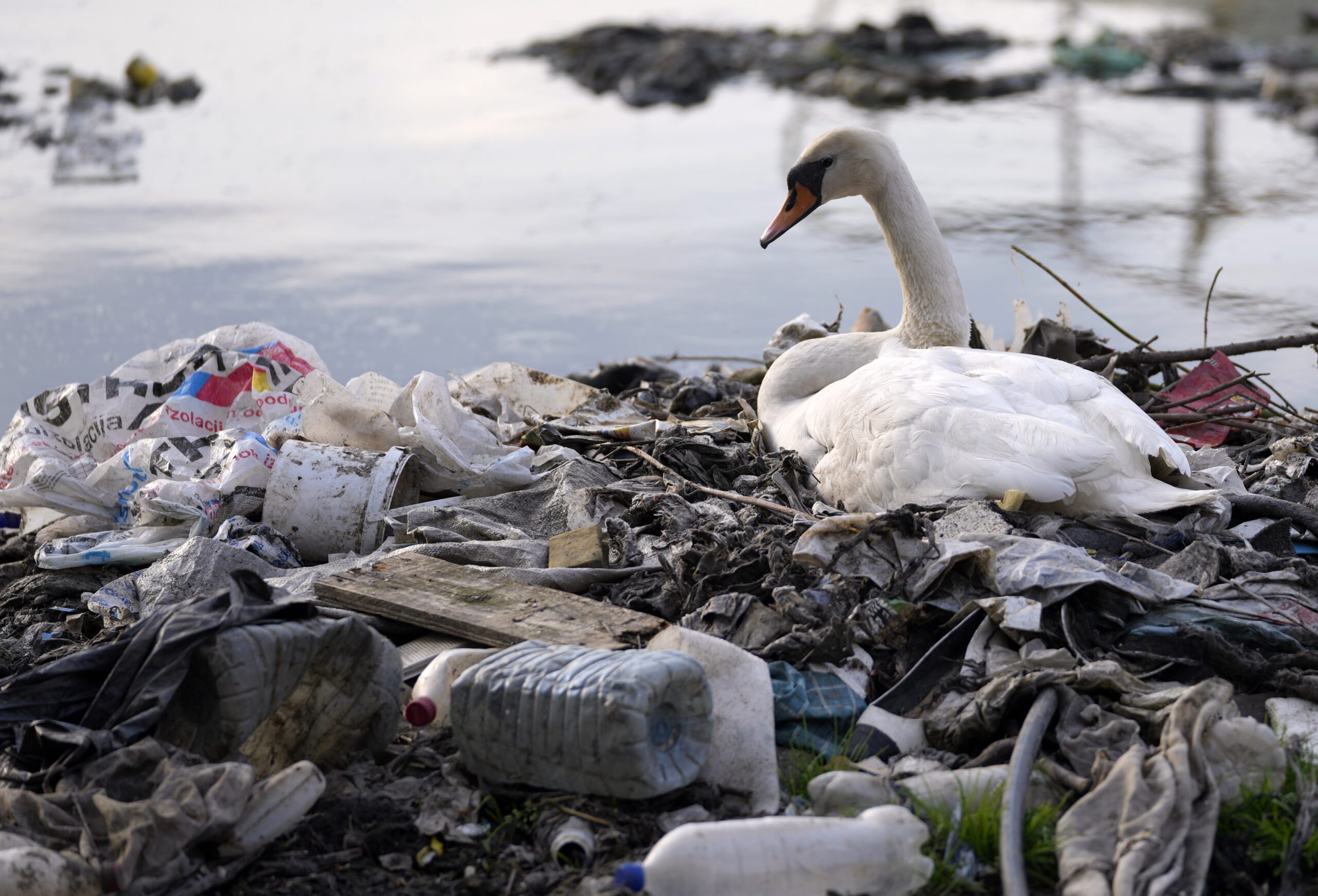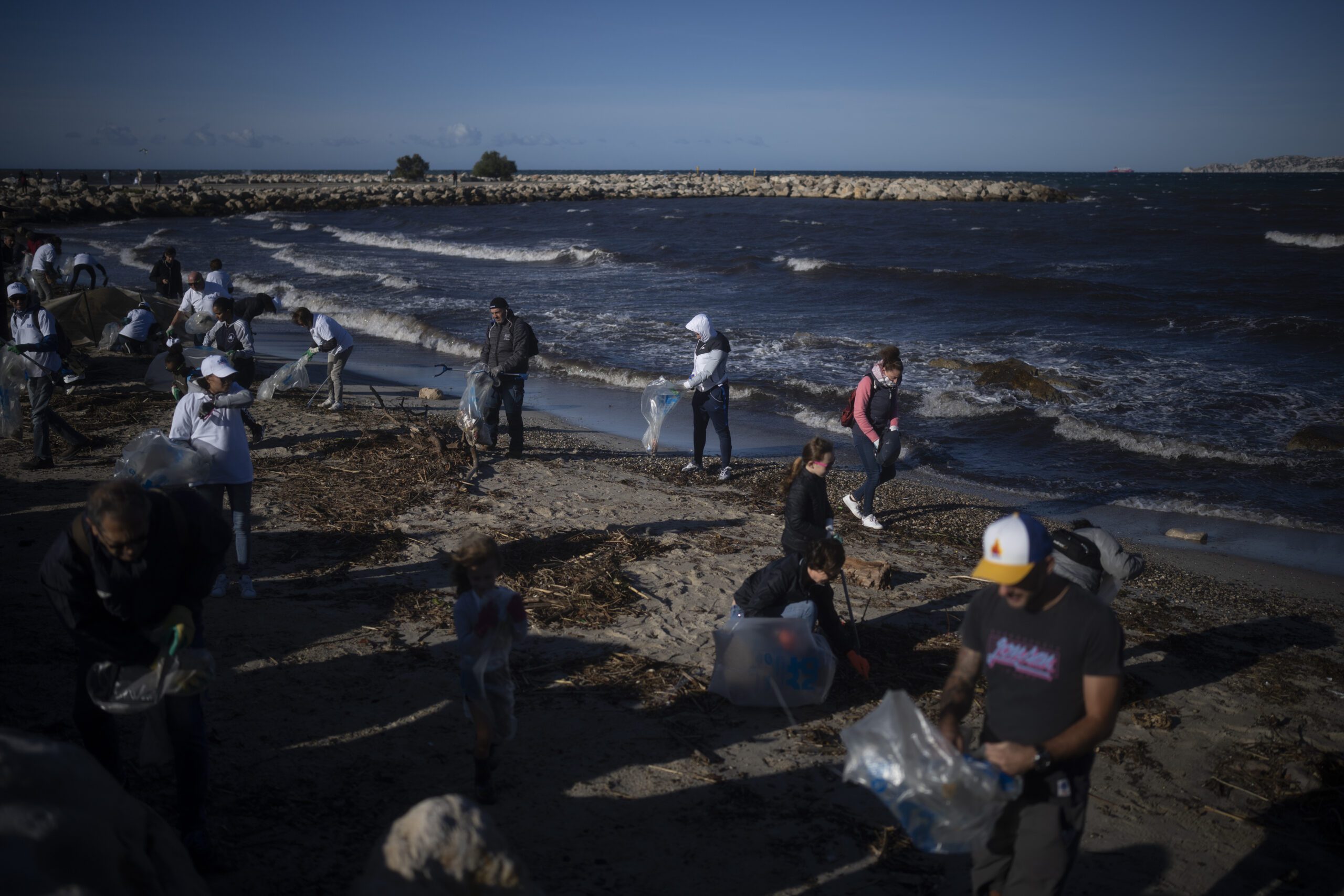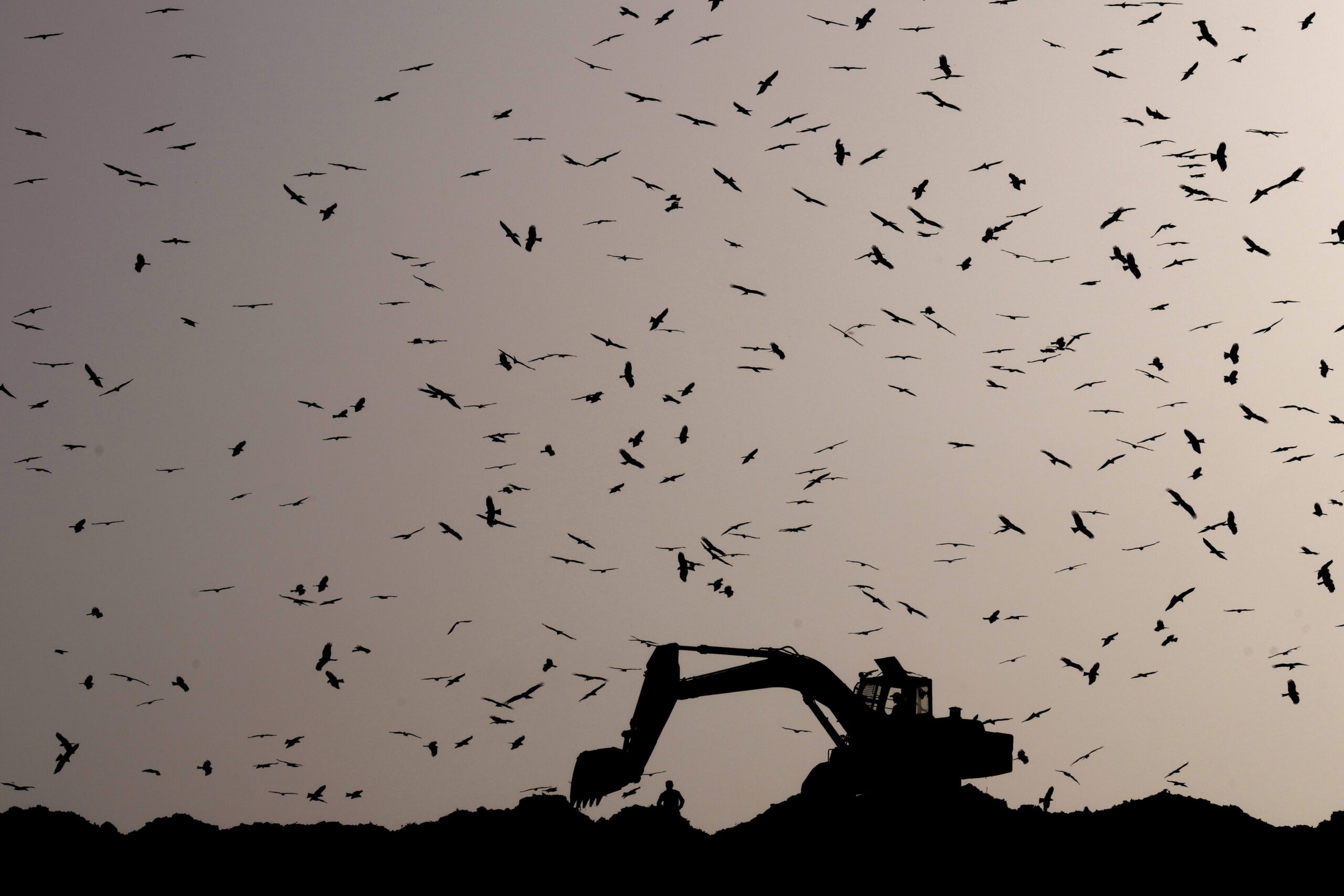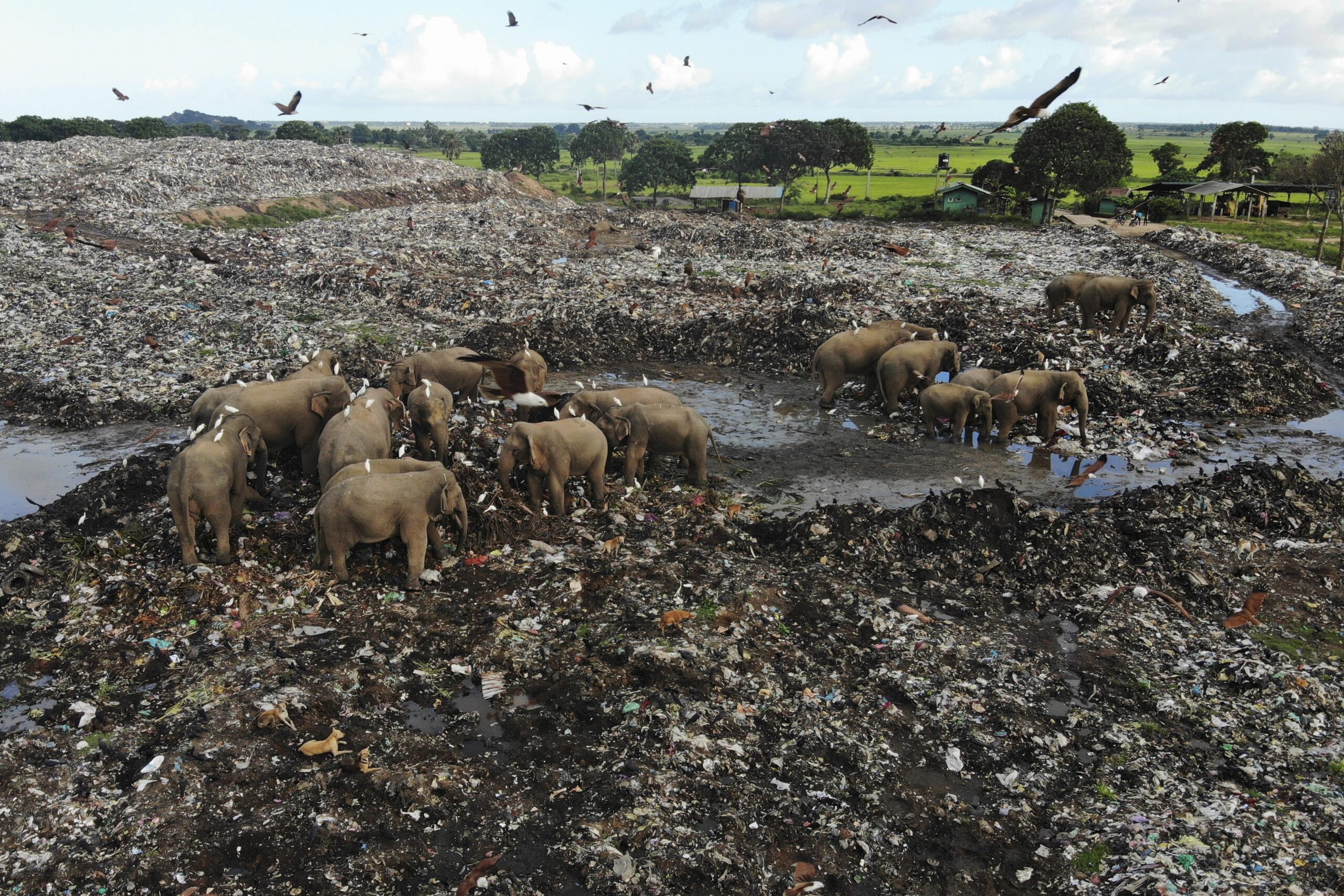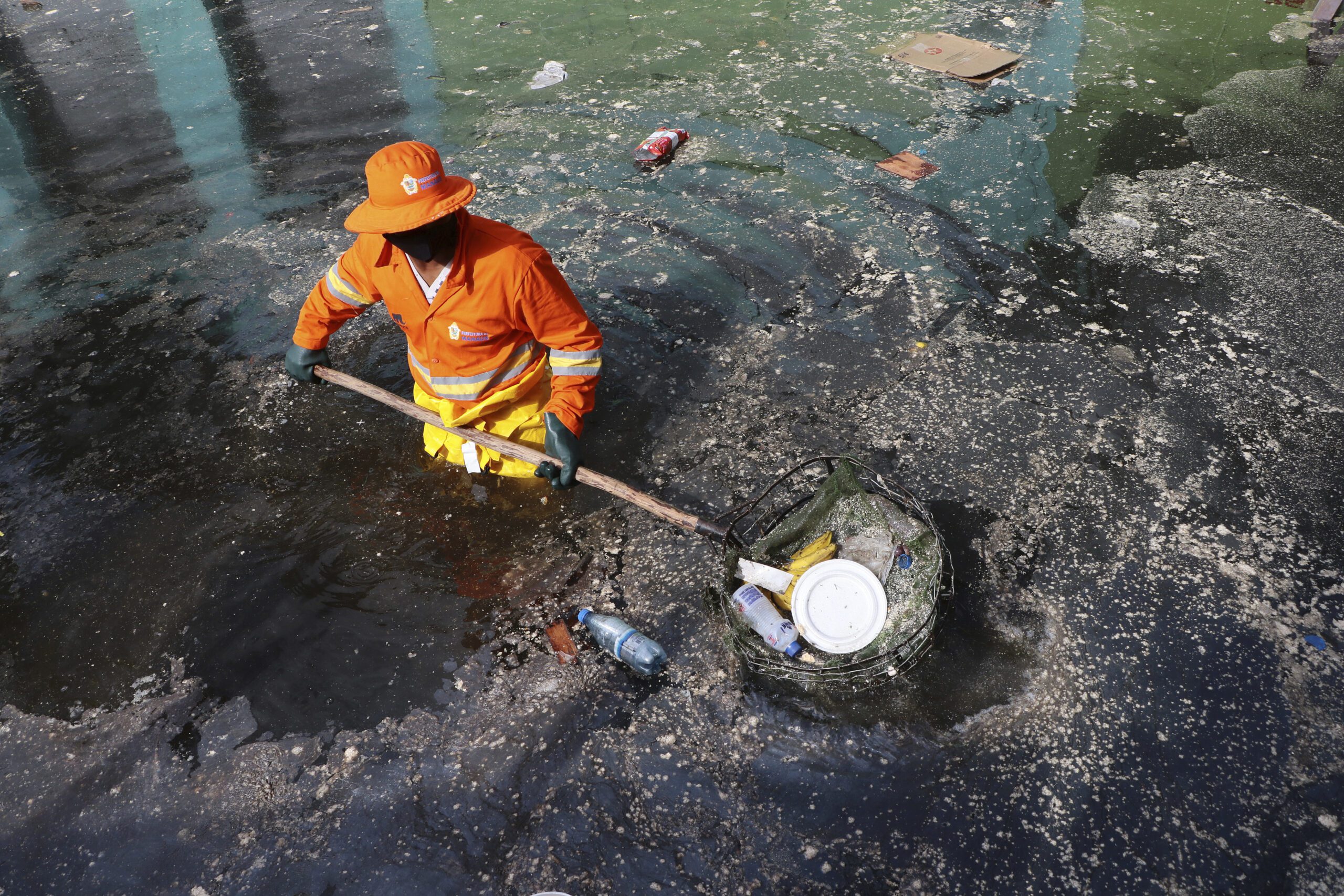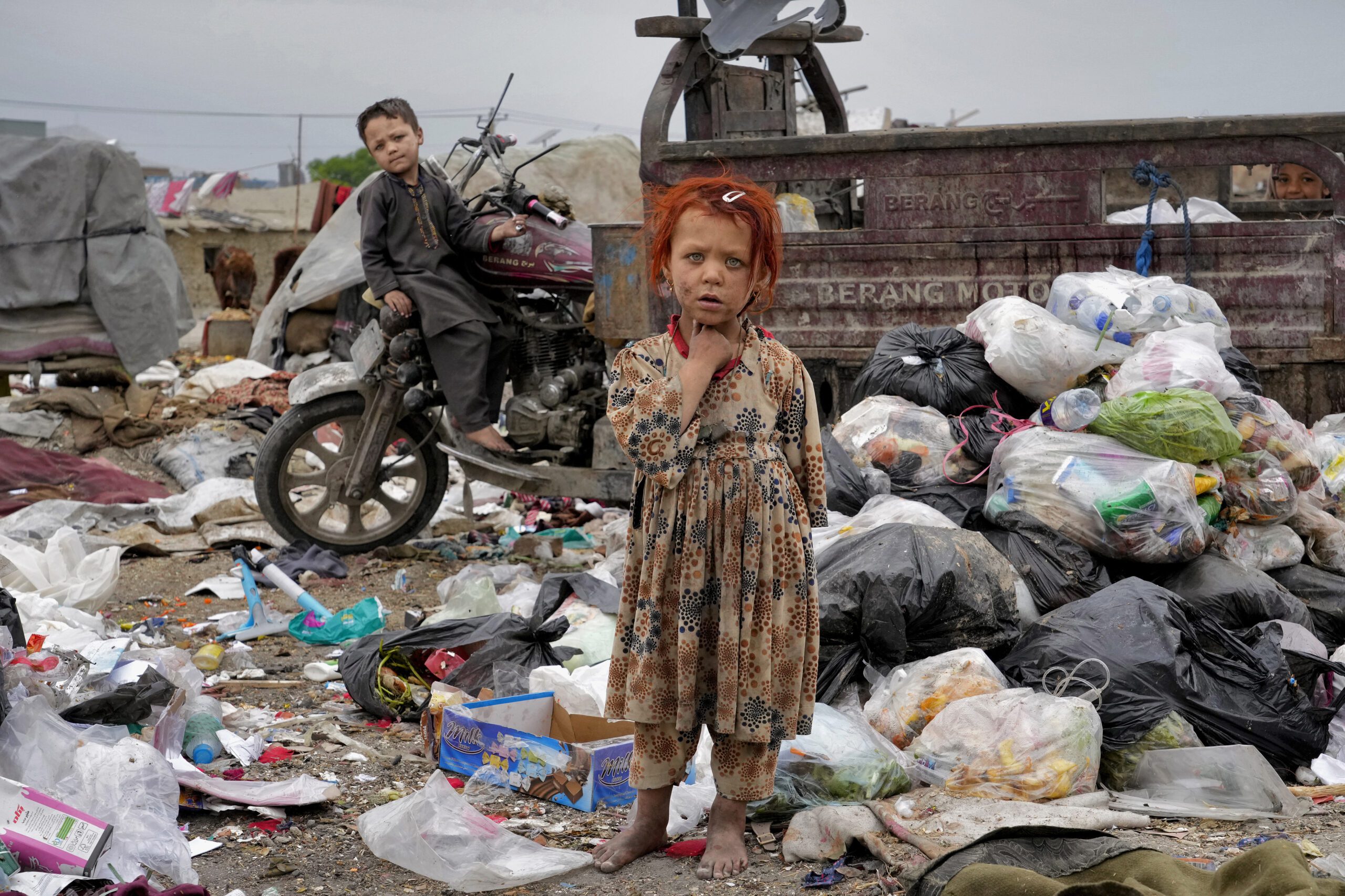PHOTOS: As world marks Earth Day, trash still big problem
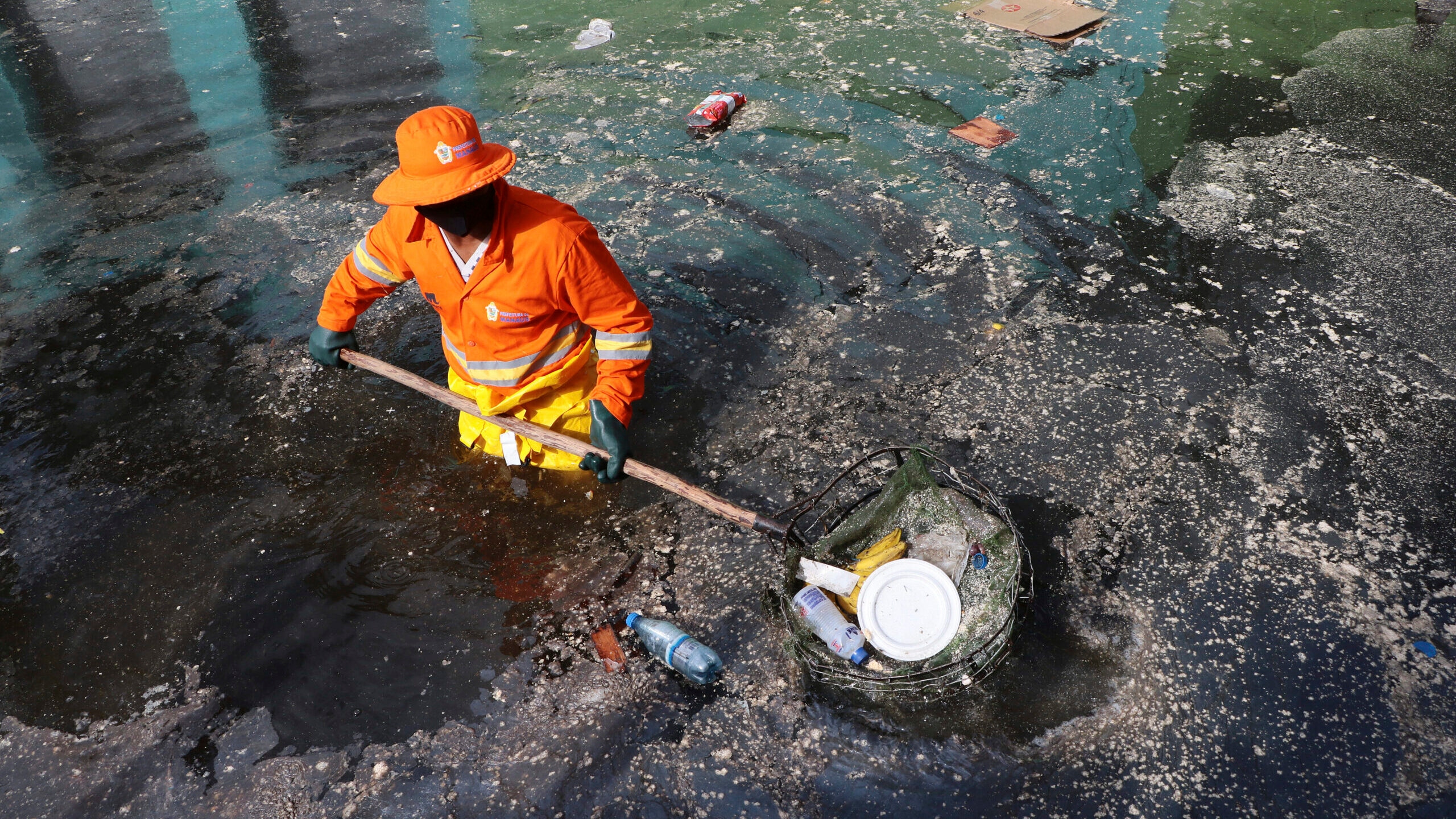
A city worker picks trash from a street flooded by the waters of the Negro River in downtown Manaus, Brazil, May 20, 2021. (AP Photo/Edmar Barros)
A group of wild elephants sift through garbage looking for food at a landfill in Sri Lanka. It’s a dangerous undertaking — around 20 elephants have died from consuming plastic trash from the landfill in the Ampara district over the last eight years.
A swan stands on a bank of the Danube River in Belgrade, Serbia, completely covered by plastic bottles and other solid waste.
And in Port-au-Prince, Haiti, a woman sells greens in front of a field of decomposing trash, some burning in piles.
“We are burying the planet in waste and this isn’t sustainable,” said University of Michigan environment dean Jonathan Overpeck. “Plastic pollution is particularly appalling. It’s becoming ubiquitous from the equator to the poles and the farthest reaches of the oceans. And much of it is simply unnecessary.”
As people worldwide on Friday mark Earth Day, an annual commemoration going back to 1970, the vivid images of garbage are a reminder of how much waste the planet still bears.
While conservation, environmental and recycling efforts have made strides, humans continue to generate a lot of trash, impacting animals, people and contributing to global warming.
Every year, 11.2 billion tons of solid waste is generated, and decay of the organic parts of such waste contribute to 5% of global greenhouse emissions every year, according to the United Nations Environmental Programme.
Garbage is found as deep as it is widespread: biologists told the Associated Press earlier this year that plastic pollution is found in the “deepest ocean trenches” and the amount found in Earth’s oceans could rise for decades. The coronavirus pandemic has worsened the world’s plastic waste woes, research shows.
“Garbage may be at the boring, stinky end of the spectrum of environmental challenges. But eventually, nothing else gets solved when we are up against a giant pile of garbage,” said Chris Field, director of the Stanford Woods Institute for the Environment.

Syachfa Nasution, 12, top, and Adrian Cannavaro, 13, collect plastic trash during a river clean up at polluted Babura River in medan, North Sumatra, Indonesia, Nov. 20, 2021. (AP Photo/Binsar Bakkara) 
Samuael Hernandez, 15, helps his father Antonio Hernandez gut their flooded home in the aftermath of Hurricane Ida in LaPlace, La., Sept. 9, 2021. (AP Photo/Gerald Herbert) 
A man who scavenges recyclable materials for a living, center, walks past Marabou storks feeding on a mountain of garage amidst smoke from burning trash at Dandora, the largest garbage dump in the capital Nairobi, Kenya, Sept. 7, 2021. (AP Photo/Brian Inganga) 
Volunteers help to clean up the trash that litters the beach to mark the World Cleanup Day in Bargny, Senegal, Sept. 18, 2021. (AP Photo/Leo Correa) 
A volunteer collects garbage from the banks of the Rodrigo de Freitas Lagoon marking World Environment Day, in Rio de Janeiro, Brazil, Saturday, June 5, 2021. (AP Photo/Bruna Prado) 
A donkey lies dead amid trash floating in the Katari River which flows into Titicaca Lake, in Chojasivi, Bolivia, Friday, Nov. 5, 2021. According to Juan Carlos Lopez, who is responsible for the Environment and Water in the nearby municipality of Pucarani, said the water pollutes crops and kills livestock. (AP Photo/Juan Karita) 
A Hawksbill sea turtle, that was found on a nearby beach, is displayed after an autopsy was performed along with trash mostly plastic materials, top, and food items, left, removed from the turtle’s stomach, at the Al Hefaiyah Conservation Center lab, in the city of Kalba, on the east coast of the United Arab Emirates, Tuesday, Feb. 1, 2022. A staggering 75% of all dead green turtles and 57% of all loggerhead turtles in Sharjah had eaten marine debris, including plastic bags, bottle caps, rope and fishing nets, a new study published in the Marine Pollution Bulletin. The study seeks to document the damage and danger of the throwaway plastic that has surged in use around the world and in the UAE, along with other marine debris. (AP Photo/Kamran Jebreili) 
Two young girls stand outside their house on a garbage strewn street, in Kabul, Afghanistan, Feb. 8, 2022. (AP Photo/Hussein Malla) 
A woman selling greens waits for customers in the Croix des Bosalles market in Port-au-Prince, Haiti, Sept. 22, 2021. The floor of the market is thick with decomposing trash and, in some places, small fires of burning trash. (AP Photo/Rodrigo Abd) 
A swan stands between dumped plastic bottles and waste at the Danube river in Belgrade, Serbia, Monday, April 18, 2022. (AP Photo/Darko Vojinovic) 
A Kashmiri boatman employed by the Lakes and Waterways Development Authority removes garbage from the Dal Lake in Srinagar, Indian controlled Kashmir, Sept. 14, 2021. Dal Lake appears pristine in the area where hundreds of exquisitely decorated houseboats bob on its surface for rent by tourists and honeymooners. But farther from shore, the lake is a mixture of mossy swamps, thick weeds, trash-strewn patches and floating gardens made from rafts of reeds. (AP Photo/Mukhtar Khan) 
Volunteers clean a beach from trash that was washed up by a storm in Marseille, southern France, Oct. 6, 2021. (AP Photo/Daniel Cole) 
Birds fly around as an earthmover sorts garbage at the Ghazipur garbage dump in New Delhi, India, Monday, March 28, 2022.(AP Photo/Manish Swarup) 
Wild elephants scavenge for food at an open landfill in Pallakkadu village in Ampara district, about 210 kilometers (130 miles) east of the capital Colombo, Sri Lanka, Jan. 6, 2022. Conservationists and veterinarians are warning that plastic waste in the open landfill in eastern Sri Lanka is killing elephants in the region, after two more were found dead over the weekend. Around 20 elephants have died over the last eight years after consuming plastic trash in the dump. Examinations of the dead animals showed they had swallowed large amounts of nondegradable plastic that is found in the garbage dump, wildlife veterinarian Nihal Pushpakumara said. (AP Photo/Achala Pussalla) 
A city worker picks trash from a street flooded by the waters of the Negro River in downtown Manaus, Brazil, May 20, 2021. (AP Photo/Edmar Barros) 
Two Afghan children stand amid piles of garbage next to their home, in Kabul, Afghanistan, April 18, 2022. (AP Photo/Ebrahim Noroozi)
